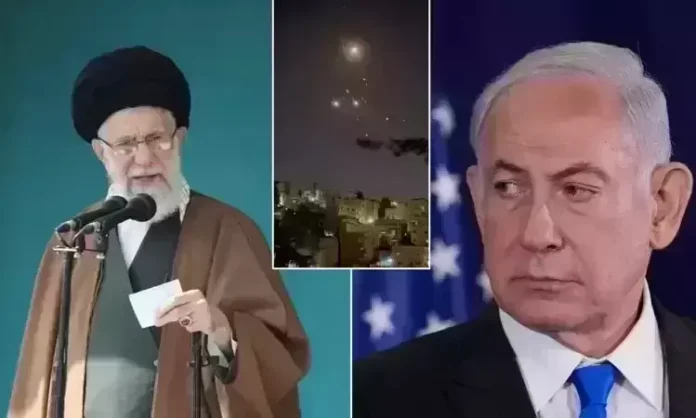Israel has reportedly suspended its long-anticipated military strike on Iran’s nuclear facilities after unverified reports suggested that Tehran may have conducted a nuclear bomb test. This unexpected move has sent shockwaves throughout the region, particularly in Israel, where officials have been preparing for potential military action against Iran for years. According to a New York Times report, the emerging intelligence has forced Israel to rethink its military strategies, as the possibility of a nuclear-armed Iran fundamentally alters the security landscape in the Middle East, reports the Madhyamam.
The reports, though not confirmed by international bodies such as the International Atomic Energy Agency (IAEA), indicate that Iran might have achieved a significant milestone in its nuclear program. While these reports remain speculative, they have ignited concerns not only in Israel but across the globe. The potential that Iran has developed operational nuclear weapons raises fears of a drastic shift in the region’s power dynamics.
This latest development has heightened anxieties in Israel, where the government has long expressed suspicion over Iran’s nuclear intentions. For years, Tehran has maintained that its nuclear activities are strictly for peaceful, civilian purposes, insisting that it has no interest in developing nuclear weapons. However, Israel and other nations remain deeply sceptical, citing Iran’s uranium enrichment levels, which surpass those required for civilian energy production. These activities have been viewed as clear indicators of military ambitions.
Israeli officials have been openly critical of Iran’s nuclear program and have repeatedly hinted at the possibility of military action to prevent Iran from acquiring nuclear weapons. Over the years, military planners in Israel have developed various strategies for striking Iran’s nuclear facilities, but the latest intelligence has cast doubt on the feasibility of such actions.
If Iran has indeed developed nuclear weapons, the risks of a military strike become exponentially higher. Any attempt to destroy Iran’s nuclear infrastructure could trigger a massive regional conflict, with the possibility of nuclear escalation. Israeli military planners are also concerned about significant retaliatory attacks from Iran and its allied forces, including Hezbollah in Lebanon and Shiite militias in Iraq and Syria.
This strategic dilemma has compelled Israel to reconsider its military options. While Israel has long relied on its qualitative military edge, including advanced missile defence systems such as the Iron Dome and David’s Sling, a nuclear-armed Iran would alter the country’s threat perception. Israel’s military superiority, which has traditionally served as a deterrent against regional threats, may no longer be sufficient in the face of a nuclear-capable adversary.
Israel’s decision to halt its planned strike on Iran is also influenced by broader geopolitical factors. The Biden administration in the United States is actively working to revive the Joint Comprehensive Plan of Action (JCPOA), the 2015 nuclear agreement that seeks to limit Iran’s nuclear activities in exchange for the lifting of economic sanctions. European allies, too, are advocating for diplomatic solutions over military confrontation.
A unilateral military strike by Israel could potentially derail these diplomatic efforts, leading to strained relations with the U.S. and Europe. Both Washington and Brussels have expressed a preference for reviving the JCPOA as a means of curbing Iran’s nuclear ambitions through negotiation rather than force. Israel, however, has consistently opposed the deal, arguing that it does not go far enough in preventing Iran from developing nuclear weapons.
The prospect of a nuclear-armed Iran poses a significant challenge to regional security. Iran’s growing influence in the Middle East, combined with its potential nuclear capabilities, threatens to upend the strategic balance that has allowed Israel to maintain military superiority over its neighbours. With advanced missile defence systems in place, Israel has historically been able to defend against non-nuclear threats from groups like Hezbollah and Hamas. However, a nuclear Iran would introduce a new and far more dangerous element to the region’s security equation.
Moreover, Iran’s potential nuclear test has caused alarm among Sunni Arab nations, particularly Saudi Arabia and the Gulf States, who view Iran as a regional rival. These nations, already wary of Iran’s influence in places like Iraq, Syria, and Yemen, may be forced to reconsider their own security strategies, possibly leading to a regional arms race. The delicate balance of power in the Middle East could be destabilised, with far-reaching consequences for global security.
As Israel grapples with the implications of a potentially nuclear-armed Iran, its military and political leaders are being forced to make difficult decisions. The risks of a pre-emptive strike have increased dramatically, and Israeli officials must now weigh the consequences of military action against the dangers of allowing Iran to develop nuclear weapons unchallenged.
The situation remains fluid, with intelligence reports still unconfirmed and diplomatic efforts ongoing. However, the prospect of a nuclear Iran has already changed the strategic calculations in the Middle East, potentially setting the stage for a new era of regional tensions and uncertainty. For Israel, the stakes have never been higher, and the coming months will be crucial in determining how the country navigates this complex and perilous security landscape.




